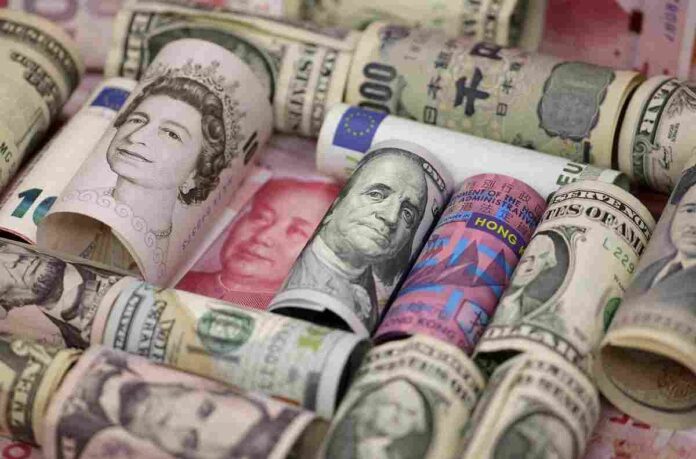The dollar strengthened against multiple currencies but weakened against the yen on Wednesday as traders monitored Ukraine ceasefire talks and new tariff threats from U.S. President Donald Trump.
The pound initially rose after stronger-than-expected UK inflation data but later retreated.
The dollar index stood at 107.2, rising 0.19% after a 1.2% decline last week. The yen gained 0.1% against the dollar at 151.855. The euro fell 0.4% against the yen to 158.25 and declined 0.2% against the dollar to $1.0426.
Trump’s administration announced further talks with Russia on ending the Ukraine war, following an initial meeting that excluded Kyiv. The European Union was not included in the discussions.
Trump said on Tuesday he intends to impose auto tariffs of around 25% along with similar duties on semiconductor and pharmaceutical imports. The announcement adds to a series of trade measures introduced by his administration.
The euro remained largely unchanged after European Central Bank board member Isabel Schnabel told the Financial Times that the bank was moving closer to pausing rate cuts.
In the UK, inflation rose to a 10-month high of 3.0% in January, exceeding expectations. The data suggests inflation may rise further, challenging the Bank of England’s outlook that price pressures will ease over time. Sterling fell 0.27% to $1.25790 after reaching a two-month high earlier in the day. Against the euro, the pound remained stable at 82.86 pence.
The Reserve Bank of New Zealand cut its benchmark rate by 50 basis points to 3.75% on Wednesday, as expected. The New Zealand dollar rose 0.2% to $0.5714 following the announcement.




